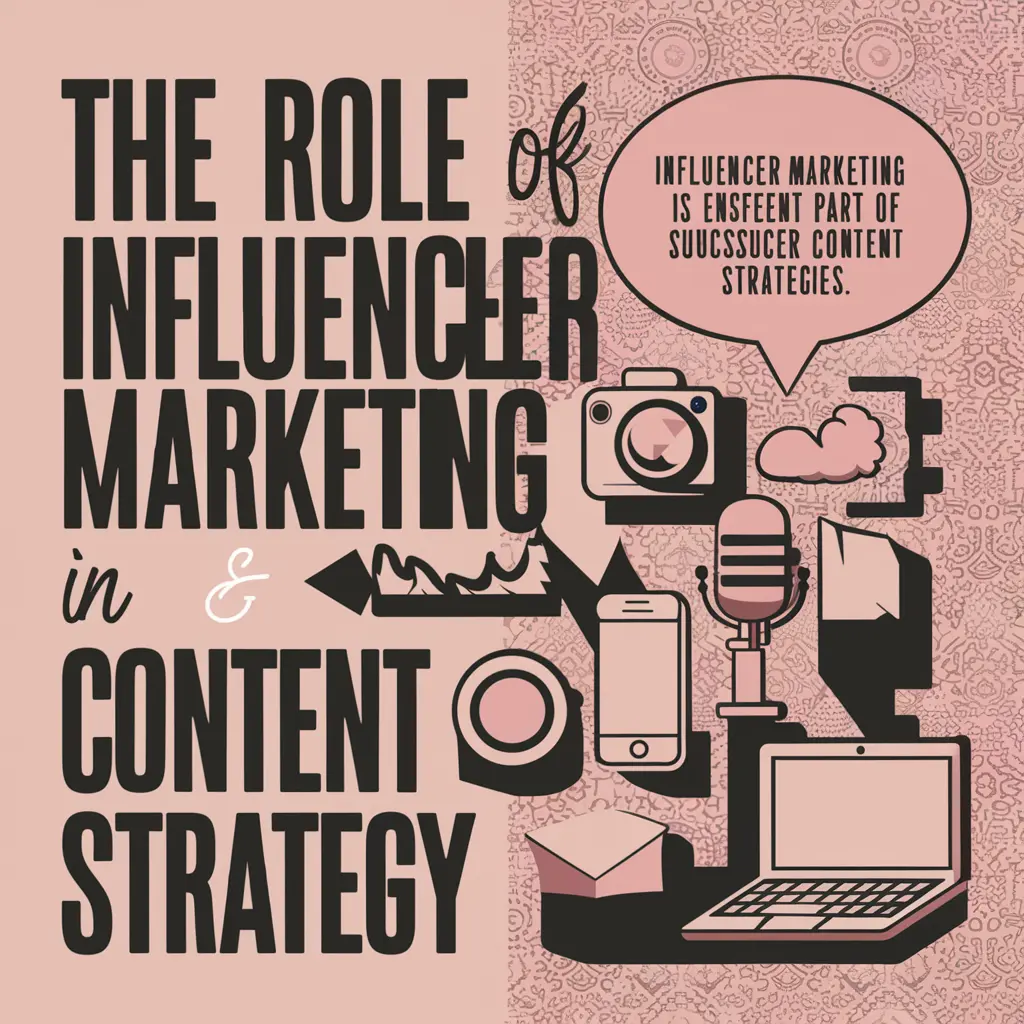The Role of Influencer Marketing in Content Strategy: A 2024 Perspective
In the dynamic world of digital marketing, influencer marketing has emerged as a powerful strategy that continues to shape the landscape of content creation and distribution. As we navigate through 2024, let’s delve into the continued importance of influencer marketing in content strategies.

Understanding Influencer Marketing
Influencer marketing is a blend of traditional and modern marketing tools. It takes the concept of celebrity endorsement and integrates it into a content-driven marketing campaign. Influencers are individuals who have the power to influence the purchasing decisions of others due to their authority, knowledge, position, or relationship with their audience. They have a following in a distinct niche, with whom they actively engage.
The Growth and Impact of Influencer Marketing
Influencer marketing is experiencing rapid growth, with an expected industry value of $21.1 billion in 2023. Over 83% of marketers affirm the effectiveness of influencer marketing as a strategy, and a majority of brands (67%) are not just adopting but also increasing their influencer marketing budgets in 2023.

Influencer Marketing in 2024: Key Trends and Transformations
In 2024, influencer marketing is expected to see more money flowing in, a focus on real results, longer partnerships, personalized content, and the need to follow new rules. Brands that adapt to these changes will be better at connecting with their audience, building loyalty, and reaching their marketing goals.
Influencer marketing is expected to continue growing in 2024, with a focus on authenticity, micro-influencers, and video content. Brands should prioritize building genuine relationships with influencers to drive successful campaigns.
A Detailed Analysis
Influencer marketing plays a pivotal role in content strategy. It helps brands amplify their messaging, increase the visibility of their content, and tap into an existing audience that trusts and engages with the influencer.
Influencer marketing is expected to move towards long-term partnerships in 2024, with creators becoming the face of campaigns. This shift signifies the importance of building strong, authentic relationships between brands and influencers, which can lead to more impactful and successful marketing campaigns.
In conclusion, influencer marketing continues to be a vital component of content strategy in 2024. By understanding and adapting to the evolving trends in influencer marketing, brands can effectively leverage this strategy to connect with their audience, enhance their content visibility, and achieve their marketing goals.

Influencer Types in Digital Marketing
Influencer marketing is not a one-size-fits-all strategy. There are different types of influencers, each with their unique role in digital marketing². These include:
* Mega influencers: Offer broad brand awareness but require high engagement.
* Macro influencers: Balance broad appeal with niche authority.
* Micro influencers: Excel in niche market trust-building.
* Nano influencers: Offer authentic localized potential.
* Blog influencers: Provide SEO-rich content for sustained visibility.
* Vlogging influencers: Use dynamic video storytelling.
* Gaming influencers: Impact tech communities.

Conclusion
As a Digital Marketing Expert in Kollam, I could conclude that in each category, distinguished by audience size and engagement strategies, plays a unique role in digital marketing. The study emphasizes aligning influencer types with specific goals and target audiences for effective campaigns, providing marketers with a strategic framework for navigating the diverse influencer ecosystem.
